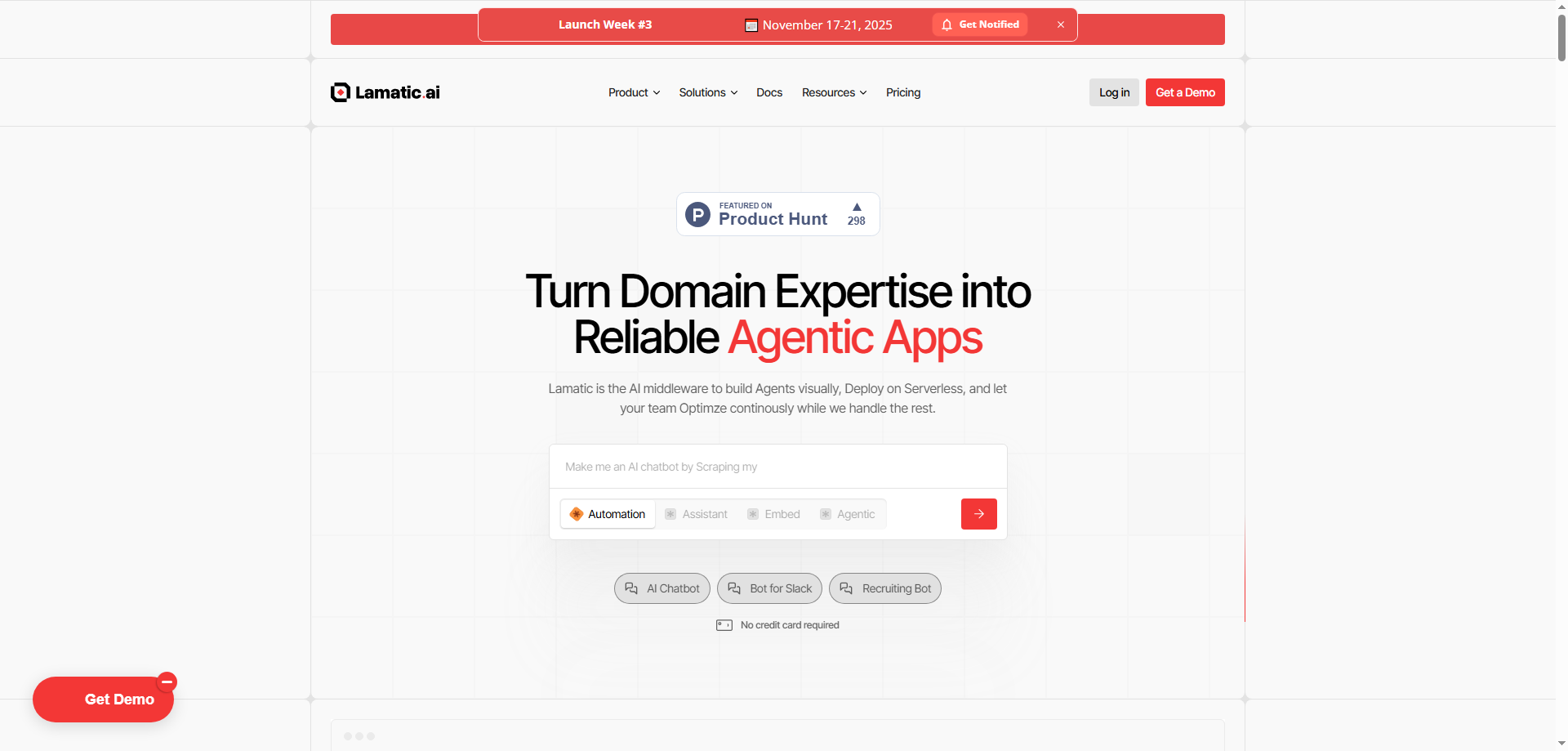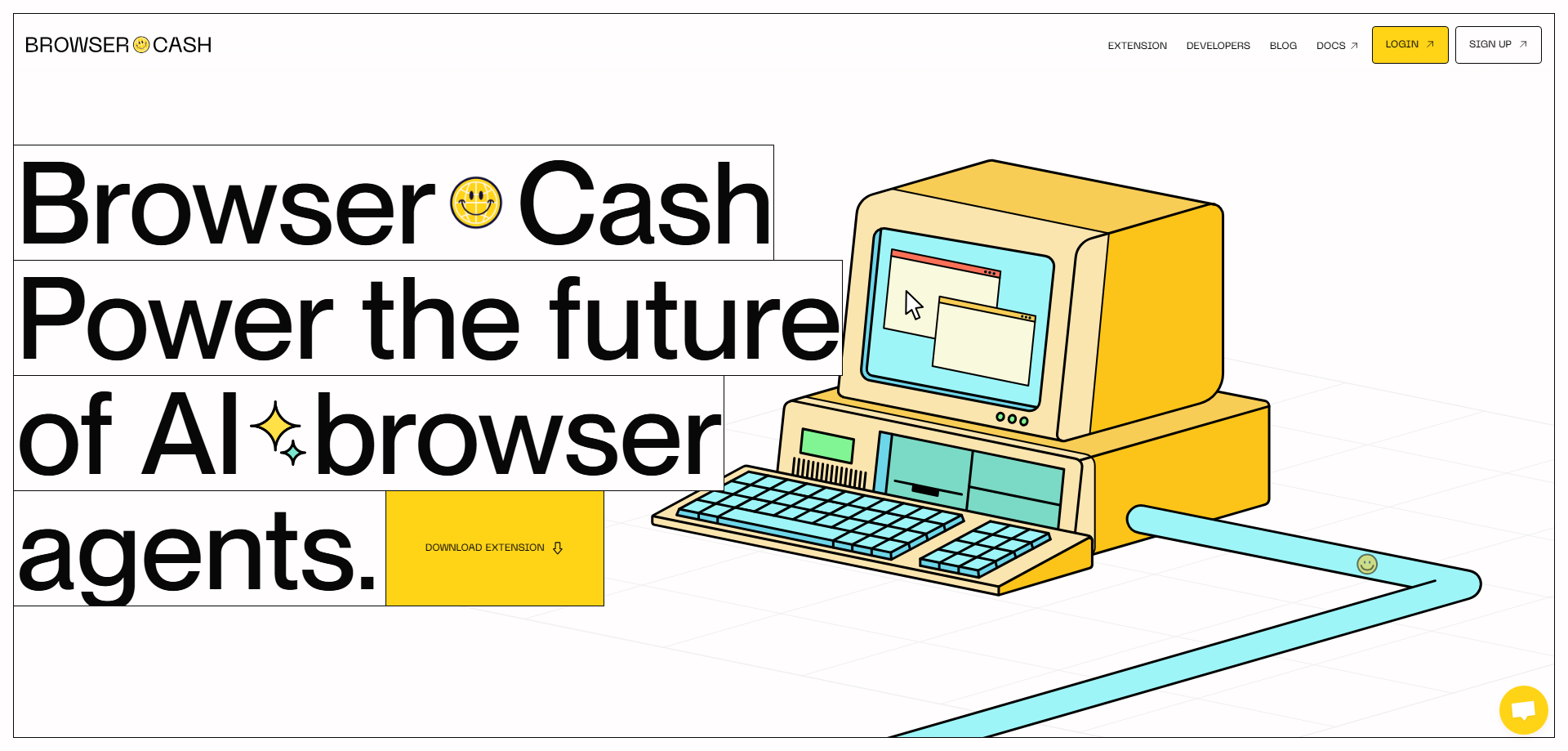My First Impression: The Creative Genius Behind Swytchcode
When I first came across Swytchcode, I'll be honest—I thought, "Oh great, another AI tool trying to jump on the bandwagon." But after spending some time with it, I realized this product is actually solving a real pain point that I've experienced countless times in my career as a developer.
The creative angle here is brilliant. Instead of treating API documentation as this static, boring wall of text that we all dread reading, Swytchcode essentially asks: "What if your API could talk back to you?" It's like they took the concept of conversational AI and said, "Let's apply this to the one thing developers hate most—reading documentation."
What really caught my attention is how Swytchcode transforms the entire learning experience. I remember onboarding to new projects where I'd have to wade through hundreds of pages of API docs, trying to figure out which endpoint does what. With Swytchcode, you can literally ask questions like "Hey, can this endpoint query user lists?" and get instant answers. It's conversational API learning, and honestly, I wish I had this five years ago.
The AI-driven workflow generation is where the creativity really shines. I can describe a complex task in plain English—something like "log in, fetch user data, then update their profile"—and Swytchcode generates the actual executable workflow. This isn't just documentation; it's an active development assistant that understands context and intent.
From a creative standpoint, Swytchcode bridges the gap between human communication and machine interfaces. We've been forcing developers to speak the language of machines for decades. Now, finally, someone's built a tool that lets machines understand our language instead. That's genuinely innovative.
The Disruption Question: Is Swytchcode a Postman Killer?
Now, let's talk about disruption. Can Swytchcode actually replace the tools we're currently using? I've been thinking a lot about this, and my answer is: not entirely, but it's carving out its own niche.
Right now, when I need to work with APIs, I reach for tools like Postman, Insomnia, or Swagger UI. These are tried-and-true tools that every developer knows. Swytchcode isn't trying to be a direct replacement for these—at least not yet. What it's doing is addressing a different problem: the cognitive load of understanding and integrating APIs.
Here's where I see the disruption potential: Swytchcode is attacking the "time-to-productivity" metric. In my experience, getting productive with a new API takes hours or even days. You read docs, experiment with requests, make mistakes, read more docs, and slowly piece together how everything works. Swytchcode compresses that timeline dramatically.
Could it replace Postman? For simple testing and exploration, maybe. I found myself using Swytchcode for quick API queries and only jumping to Postman when I needed really granular control over headers or authentication flows. But for complex debugging scenarios or performance testing, I still prefer dedicated API testing tools.
Where Swytchcode could truly disrupt is in the API documentation space. Traditional API docs from tools like Swagger or ReadMe are static. Swytchcode makes them dynamic and intelligent. If I were running an API-first company, I'd seriously consider Swytchcode as a replacement for static documentation—it's just a better developer experience.
The workflow automation feature is genuinely disruptive. I've spent countless hours writing integration scripts that chain multiple API calls together. Swytchcode can generate these automatically from natural language descriptions. That's time I'm never getting back, and it's time future developers won't have to waste either.
My verdict on disruption: Swytchcode won't kill existing tools overnight, but it's creating a new category—conversational API interaction. In a year or two, I predict we'll see Postman and others scrambling to add similar AI features. That's how you know something's disruptive.
User Acceptance: Will Developers Actually Use This?
Let me be real with you—developers are notoriously picky about their tools. We have our workflows, our muscle memory, and we hate change. So the question is: will developers actually adopt Swytchcode?
I think the answer depends on the user segment. For junior developers or people new to a codebase, I can see Swytchcode being incredibly valuable. When you're drowning in unfamiliar APIs, having an AI assistant that can answer questions conversationally is a lifesaver. I would've killed for this when I was starting out.
For senior developers, the adoption curve might be slower. We've already internalized how to read API docs efficiently. But here's the thing: even as an experienced developer, I found Swytchcode saving me time. The workflow generation alone is worth it when you're dealing with complex integrations.
The Product Hunt metrics tell an interesting story—405 upvotes and 61 discussions suggest there's genuine interest. That's solid engagement for a developer tool. People are talking about it, which means it's resonating with at least part of the developer community.
One concern I have about user acceptance is the learning curve paradox. Swytchcode is meant to reduce complexity, but initially, you need to learn how to use Swytchcode itself. Will developers invest that time? I think so, if the value proposition is clear enough—and from what I've seen, it is.
Another factor in user acceptance is trust. Developers need to trust that the AI-generated workflows are correct and secure. I tested several scenarios, and the accuracy was impressive, but I still reviewed everything before using it in production. That trust-building process will take time.
I also think team adoption is key. If you're on an API-first team where everyone's using Swytchcode, the network effects kick in. You can share workflows, collaboratively explore APIs, and build a shared understanding faster. That's where I see the highest acceptance potential.
Integration with existing tools will also drive adoption. If Swytchcode can export to Postman collections or generate code snippets for popular frameworks, developers will be more likely to incorporate it into their existing workflows rather than replacing everything.
My assessment: User acceptance will start with early adopters and forward-thinking teams, then gradually spread as the benefits become undeniable. It's not a hard sell once people actually try it.
Survival Rating: 3.5/5 Stars - Here's Why
Alright, time for the tough question: Will Swytchcode survive the next twelve months? I'm giving it 3.5 out of 5 stars for survival probability, and let me explain my reasoning.
Why Not Higher Than 3.5 Stars?
First, the competitive landscape is brutal. Big players like Postman have massive resources and could easily add AI features to their platforms. If Postman launches "Postman AI Assistant" tomorrow, Swytchcode's unique value proposition gets squeezed. That's a real risk.
Second, I'm concerned about the business model sustainability. The product is free right now, which is great for adoption, but how will they monetize? If they introduce a paid tier too early or too aggressively, they risk killing their momentum. If they wait too long, they burn through funding. It's a delicate balance.
Third, there's the AI reliability factor. Swytchcode's entire value depends on the quality of its AI responses. One high-profile failure where the AI generates broken or insecure code could seriously damage the brand. AI tools are under intense scrutiny right now, and one mistake can be costly.
Why Not Lower Than 3.5 Stars?
Despite these risks, I'm optimistic because the problem Swytchcode solves is real and growing. As more companies adopt API-first architectures, the pain of managing and understanding APIs multiplies. Swytchcode addresses this trend directly.
The Product Hunt traction suggests market validation. 405 votes isn't viral, but it's respectable for a developer tool. More importantly, the 61 discussions indicate people are engaging deeply with the concept, not just casually upvoting.
The timing is right. AI tooling is exploding right now, and developers are increasingly comfortable with AI assistants in their workflows. GitHub Copilot normalized AI pair programming; Swytchcode is riding that wave into the API space.
Key Risks I'm Watching:
-
Competition from incumbents: If Postman, Insomnia, or Swagger add similar AI features, Swytchcode needs to differentiate quickly.
-
AI hallucination issues: If the AI starts confidently giving wrong answers about APIs, trust evaporates fast.
-
Monetization missteps: Pricing developer tools is hard. Too expensive, and indie developers bail. Too cheap, and enterprise customers don't take you seriously.
-
Security concerns: Enterprises are paranoid about AI tools accessing their API documentation. One security breach could be fatal.
-
Developer skepticism: If influential developers or tech leaders criticize the tool publicly, adoption could stall.
Opportunities That Could Push Them Higher:
-
Enterprise adoption: If a few major tech companies adopt Swytchcode for their internal APIs, that's instant credibility and recurring revenue.
-
Platform partnerships: Partnering with API gateway providers or cloud platforms could provide distribution channels.
-
Community building: If they build a strong community where users share workflows and use cases, network effects take over.
-
Integration ecosystem: Building integrations with popular dev tools (VS Code, IntelliJ, Slack) increases stickiness.
-
Open-source strategy: Open-sourcing part of the platform could accelerate adoption and build goodwill in the developer community.
My Honest Take:
Swytchcode is in that precarious phase where it's proven the concept but hasn't yet achieved escape velocity. The next twelve months will determine whether they become a must-have tool or just an interesting experiment that got acquired.
If I were advising the Swytchcode team, I'd focus on three things: First, lock in some enterprise customers who will pay real money—that validates the business model. Second, build defensible moats through unique AI models trained specifically on API patterns—generic LLMs won't cut it long-term. Third, create viral growth loops where using Swytchcode makes you want to share it with your team.
The product is genuinely useful. I've used it, I've saved time with it, and I can see myself continuing to use it. But in the startup world, being useful isn't always enough—you need to be indispensable. Swytchcode isn't there yet, but it could get there.
Final Thoughts
Look, I'm not going to sugarcoat this—the developer tools market is tough. I've seen brilliant products fail because they couldn't crack the go-to-market puzzle or got crushed by better-funded competitors. Swytchcode has real innovation, genuine utility, and decent early traction, but the path from here to sustainable success is narrow.
What gives me hope is that every developer I've shown Swytchcode to has had that "aha moment" where they realize this could actually save them time. That's rare and valuable. The question is whether they can convert those moments into long-term usage and paying customers.
My 3.5-star rating reflects cautious optimism. I want Swytchcode to succeed because we need more tools that actually make developers' lives easier, not just add to the noise. They've got a year to prove they can build a sustainable business around this great idea.
If you're a developer working with APIs regularly, I'd say give Swytchcode a try. It's free right now, and you might discover it saves you hours. If you're an investor, I'd watch this space closely—if they nail the execution, this could be big.
Will Swytchcode be around in twelve months? I think so. Will it be thriving or just surviving? That's the question that keeps me checking back to see how they're progressing. Either way, they've already pushed the industry forward by showing us what's possible when you combine AI with API tooling, and that matters.









